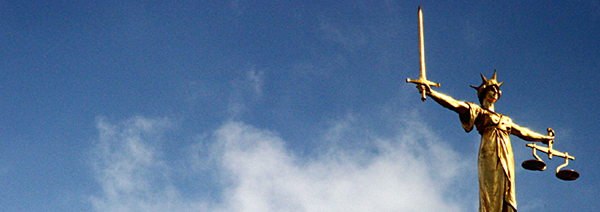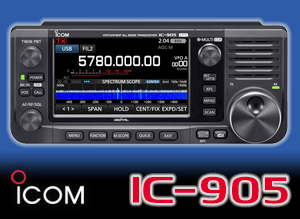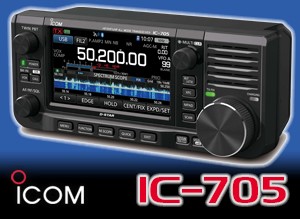DBS Checks FAQ

Checks provided by the Disclosure and Barring Service (DBS).
DBS checks were formerly known as Criminal Records Bureau (CRB) checks.
The primary role of the DBS and its equivalent in Scotland and Northern Ireland is to help employers make safer recruitment decisions and prevent unsuitable people from working with vulnerable groups including children. The DBS was established under the Protection of Freedoms Act 2012 and merges the functions previously carried out by the Criminal Records Bureau (CRB) and Independent Safeguarding Authority (ISA).
The Society has the responsibility for ensuring compliance with the regulations as far as its staff and volunteers are concerned. In practice this affects Registered Assessors (i.e. those who carry out practical assessments prior to Foundation and Intermediate examinations).
Clubs and independent training providers have the responsibility for ensuring compliance for volunteers who teach students or supervise examinations, within the context of their overall duty to protect children and vulnerable adults. This means trainers and examination invigilators.
The DBS Checks Guidance for Volunteering published in 2008 states that the decision as to whether to make a DBS check is a matter for the employer. Our legal advice is that “Employer” in this context means the RSGB for Registered Assessors, and clubs and independent providers for trainers and examination invigilators. It goes on to state that the decision should be part of an overall risk management process. The decision should, it states, be made “carefully” and “because there is a strong and demonstrable reason for doing so and not just in case”.
After careful consideration of the advice it is clear that whilst some trainers may need a DBS check depending on who they teach and how their teaching time is structured, registered assessors do not need to be checked, but RSGB HQ will however, continue to take up references before registering assessors.
If you wish to become a trainer or invigilator your club or independent training provider will decide if you need to be DBS checked.
Individuals cannot request a DBS check for themselves, the request for a DBS check must come from the organisation recruiting the individual i.e. club or independent training provider.
If it is decided a DBS check is necessary and you are a member of the RSGB a check will be organised free of charge by staff at HQ.
If you are a non-member the DBS check will need to go through an umbrella body or registered body of the DBS as the DBS does not support an application from an individual direct. The RSGB as a registered body can organise this although an administration fee will be charged for supplying the forms required and liaising with the DBS on behalf of the applicant.
Clubs and independent training providers have the responsibility for ensuring compliance for volunteers who teach students or supervise examinations, within the context of their overall duty to protect children and vulnerable adults. This means trainers and examination invigilators.
The DBS Checks Guidance for Volunteering published in 2008 states that the decision as to whether to make a DBS check is a matter for the employer. Our legal advice is that “Employer” in this context means the RSGB for Registered Assessors, and clubs and independent providers for trainers and examination invigilators. It goes on to state that the decision should be part of an overall risk management process. The decision should, it states, be made “carefully” and “because there is a strong and demonstrable reason for doing so and not just in case”.
After careful consideration of the advice it is clear that whilst some trainers may need a DBS check depending on who they teach and how their teaching time is structured, registered assessors do not need to be checked, but RSGB HQ will however, continue to take up references before registering assessors.
If you wish to become a trainer or invigilator your club or independent training provider will decide if you need to be DBS checked.
Individuals cannot request a DBS check for themselves, the request for a DBS check must come from the organisation recruiting the individual i.e. club or independent training provider.
If it is decided a DBS check is necessary and you are a member of the RSGB a check will be organised free of charge by staff at HQ.
If you are a non-member the DBS check will need to go through an umbrella body or registered body of the DBS as the DBS does not support an application from an individual direct. The RSGB as a registered body can organise this although an administration fee will be charged for supplying the forms required and liaising with the DBS on behalf of the applicant.
Ninety percent of Enhanced Disclosures are completed within four to six weeks.
Please note, if an applicant has had two or more previous addresses which fall in different counties it can take longer because local records have to be checked for each county the applicant has lived in.
The Disclosure and Barring Service (DBS) have clearance to access the Police National Computer, Government records and local police records.
DBS checks are used to make safer recruitment decisions by identifying candidates who may be unsuitable for certain work that involves children and vulnerable adults.
After a DBS check is completed an Official Disclosure Certificate is issued by the DBS showing the results of the check and contains impartial and confidential criminal history information held by the police and government departments.
Enhanced Disclosure—the applicant will receive the Disclosure by post directly from the DBS. In addition a copy will be sent to the RSGB.
Organisations and Registered Bodies are bound by the DBS Code of Practice, which is issued under section 122 of Part V of the Police Act 1997.
Under the provisions of the Code, sensitive personal information must be handled and stored appropriately and must be kept only for as long is necessary.
Under the provisions of the Code, sensitive personal information must be handled and stored appropriately and must be kept only for as long is necessary.
Safeguards and guidelines have been introduced to ensure that conviction information is not misused and that ex-offenders are not treated unfairly.
The DBS Code of Practice covers how recipients of Disclosures use the information revealed. In particular, they must consider;
The DBS Code of Practice covers how recipients of Disclosures use the information revealed. In particular, they must consider;
- Whether the conviction is relevant to the position in question
- The seriousness of the matter revealed
- The length of time since the matter occurred
Yes. If you have received the results of your DBS check and there is an error or if you wish to dispute any of the information revealed, please contact the DBS immediately on 0870 90 90 778. Disputes should be raised within three months of the date of issue of the Disclosure.
The Home Office have announced that from early 2013, employees and volunteers will no longer have to apply for a new criminal records check each time they apply for a job.
Instead they will only have to apply once to the Disclosure and Barring Service (DBS) for a certificate and can then go online for an instant check to find out whether their existing certificate is still up to date.
This will avoid the need for individuals to apply for multiple checks to work with different organisations and volunteers will be able to use the service for free when they apply for different volunteering opportunities.
It applies to England and Wales only, though it is intended that an update service will be introduced in Northern Ireland at a later stage.
Instead they will only have to apply once to the Disclosure and Barring Service (DBS) for a certificate and can then go online for an instant check to find out whether their existing certificate is still up to date.
This will avoid the need for individuals to apply for multiple checks to work with different organisations and volunteers will be able to use the service for free when they apply for different volunteering opportunities.
It applies to England and Wales only, though it is intended that an update service will be introduced in Northern Ireland at a later stage.
The DBS will issue a DBS certificate “free of charge” if the person for whom the DBS check is required satisfies the following criteria (definition of volunteer):
"A volunteer is a person who is engaged in any activity which involves spending time, unpaid (except for travelling and other approved out-of-pocket expenses) doing something which aims to benefit someone (individuals or groups) other than or in addition to close relatives."
There is no charge for RSGB members requiring a DBS check.
Non-members will need to pay an admin fee to the RSGB in order for them to carry out the administration involved in the process.
"A volunteer is a person who is engaged in any activity which involves spending time, unpaid (except for travelling and other approved out-of-pocket expenses) doing something which aims to benefit someone (individuals or groups) other than or in addition to close relatives."
There is no charge for RSGB members requiring a DBS check.
Non-members will need to pay an admin fee to the RSGB in order for them to carry out the administration involved in the process.
It is important to follow the instructions in the application form carefully. Any mistakes you make on the form will delay your application:
Tips to help with the DBS application form:
Where possible you should record the information required only in the relevant boxes provided on the DBS application form. If this is not possible you can use an extra page called a “continuation sheet”. You will need to submit this at the same time as your application form.
Tips to help with the DBS application form:
- Use black ink and write clearly in block capitals only
- Use only one letter or number for each box
- To correct a mistake on the form put a line through it and write the correction clearly to the right or as close as possible
- Leave an empty box between words, but DON’T include spaces within a telephone number
- Mark choices in the boxes indicated with a cross [X], not a tick
- Be sure to sign the declaration keeping all of your signature inside the box
Where possible you should record the information required only in the relevant boxes provided on the DBS application form. If this is not possible you can use an extra page called a “continuation sheet”. You will need to submit this at the same time as your application form.
- Writing over edges of any of the boxes
- Placing stamps or stickers on the form, e.g. address labels
- Completing a section of your form which isn’t relevant—just leave it blank, do not put N/A
- Using staples
- Using correction fluid
Consult the table below.

For the safety of your documents we recommend you use the Post Office identity document checking service. They will photocopy and certify that these copies as being a true likeness of the original. There is a charge for this service and they will check up to a maximum of three original documents for this price. No other certification is acceptable by us or the DBS.










